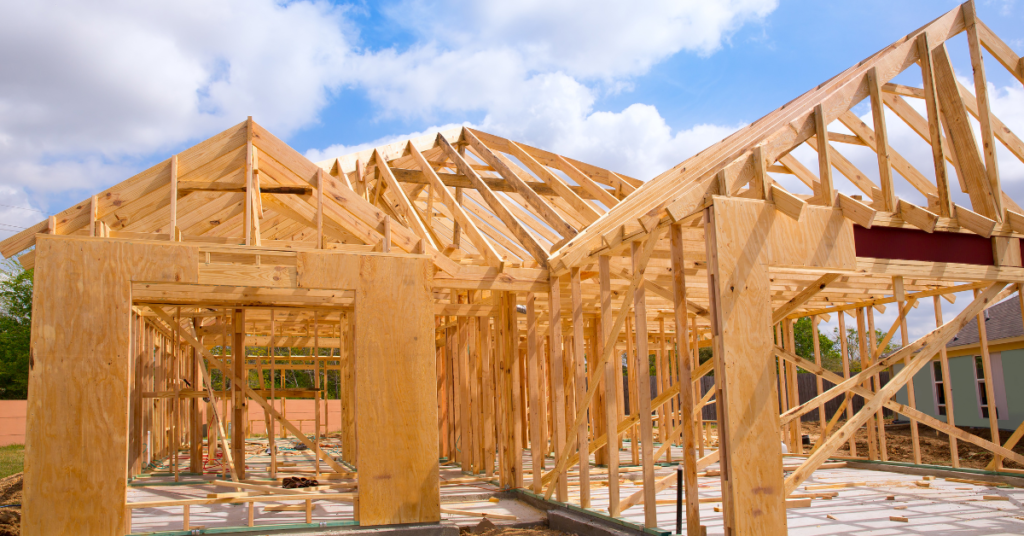When it comes to buying a property, one option that many individuals consider is purchasing a new construction property. With the allure of modern designs, the promise of customization options, and the peace of mind that comes with owning something brand new, it’s no wonder why these properties are so enticing. However, before making a decision on whether or not to invest in a new construction property, it’s important to have access to reliable information that can help guide your choice. In this professional guide, we will explore the various aspects you should consider when determining if buying a new construction property is right for you. From understanding the benefits and potential drawbacks to navigating the complexities involved in acquiring such properties, this article aims to provide you with an invaluable resource as you embark on your real estate journey. Whether you’re a first-time buyer or looking for your forever home upgrade, read on to gain expert insights into making an informed decision about whether investing in a new construction property aligns with your unique needs and goals.
Understanding the Benefits of Buying a New Construction Property
Benefits of Buying a New Construction Property
Quality and Customization
New construction properties are built with the latest building materials and technology, ensuring that you’ll enjoy a higher quality home. You won’t have to worry about outdated features or repairs for several years, which can save you both time and money. Additionally, buying new allows you to customize your home according to your preferences, from selecting finishes to choosing floor plans. This level of personalization ensures that your new property truly feels like home.
Energy Efficiency and Lower Utility Costs
Newly constructed homes are designed with energy efficiency in mind. They often come equipped with modern insulation systems, energy-efficient windows, efficient appliances, LED lighting fixtures, and programmable thermostats. These features contribute to lower utility bills over time while reducing your carbon footprint. As energy costs continue to rise, owning an energy-efficient home becomes more advantageous.
Warranty Coverage
When purchasing a new construction property from a reputable builder or developer, it typically comes with warranty coverage for various components such as roofing materials, HVAC systems, and appliances. This adds peace of mind, knowing that any unexpected defects will be rectified without additional expenses for a specific period after purchase.
Factors to Consider Before Investing in a New Construction Property
Purchasing a new construction property can be an exciting venture, but it is crucial to carefully consider several factors before making your investment decision. Here are a few key points to keep in mind:
- Location – The location of the property plays a significant role in its potential for growth and future resale value. Research the area’s development plans, proximity to amenities such as schools and shopping centers, transportation options, and overall desirability.
- Builder Reputation – Before committing to buying from a specific builder, do some research on their reputation within the industry. Look for reviews or testimonials from previous buyers regarding the quality of construction, adherence to deadlines, communication skills, and customer service.
- Timeline and Delays – Understand that new construction projects often experience delays due to various unforeseen circumstances like weather or permit issues. Factor in these potential delays when planning your move-in date or any possible financial implications tied to them.
The Process of Purchasing a New Construction Property
Purchasing a new construction property involves several key steps. Here’s an overview to guide you through the process:
- Research: Begin by researching new construction properties in your desired location. Consider factors such as amenities, floor plans, and pricing options.
- Financing: Determine your budget and explore financing options early on. This will help you understand how much you can afford and streamline the buying process later.
- Choose a builder: Selecting the right builder is crucial for a smooth experience. Look for reputable builders with a good track record, positive customer reviews, and reliable construction timelines.
- Customize your home: One major advantage of purchasing new construction is the ability to customize certain aspects of your home, such as finishes, appliances, and upgrades.
- Negotiate terms: Once you’ve chosen a property, negotiate the terms with the builder or developer including price, warranties, and any additional features or requests you may have.
- Home inspection: Arrange for an independent home inspection before finalizing the purchase to ensure that all systems are functioning correctly and there are no structural issues.
- Close the deal: Sign all necessary paperwork and close on your new construction property.
Follow these steps diligently to ensure a successful purchase of your dream home!
Potential Drawbacks of Buying a New Construction Property
1. Delays in construction timelines
When buying a new construction property, one of the potential drawbacks is that there may be delays in the construction timeline. This can be frustrating for buyers who have already made plans based on the expected completion date. It’s important to remember that unforeseen issues such as weather, labor shortages, or material delays can all contribute to these setbacks.
2. Limited customization options
While purchasing a new construction property allows buyers to choose certain features and finishes, there are often limitations on customization options. Developers typically offer a range of pre-set choices for fixtures, flooring, and paint colors. Buyers seeking more personalized touches may find themselves disappointed by these restrictions.
3. Uncertain neighborhood development
Another drawback with buying a new construction property is the uncertainty surrounding future neighborhood developments. As new communities are being constructed, it’s difficult to anticipate how nearby areas will develop over time. What might seem like an attractive location now could change drastically in the future as other properties or businesses come up nearby.
In conclusion, while there are many advantages to buying a new construction property such as modern amenities and warranties, it’s crucial to consider potential drawbacks like delays in construction timelines, limited customization options, and uncertain neighborhood development before making your decision.
Thinking of diving into the world of new construction? Check out this short video.

